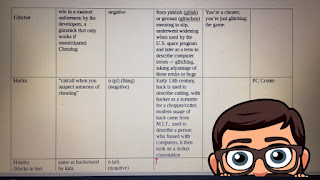Even though I am an ENL and Social Studies teacher, I foremost consider myself both a linguist and historian; perhaps it was my passion for these disciplines that inspired me to teach. I ate up all of the things I learned when I was studying to obtain my TESOL degree. With the encouragement of my professors, I continued to read and learn outside of the context of the classroom.
 |
| Dr. David Harrison |
During my last year of obtaining my Master´s degree, I volunteered to help out at the annual LACUS conference, which that year was hosted by Molloy College. LACUS is the Linguistic Association of Canada and the United States, and every year it brings together some of the most prominent linguists in the Western Hemisphere. The conference was inspiring, and I even had the opportunity to meet one of my favorite linguists, Dr. David Harrison.
Anyway, my linguistics and grammar professor Dr. Nenchin asked me to help out with research that she was doing for the following year´s conference. The goal of our research was to analyze gamer slang. We wanted to look at gaming slang that emerged since the advent of online gaming and determine where this language was coming from. Were words and phrases created in online communities? Or did they come from elsewhere? If these words and phrases originated outside of gaming, how did they make their way into online gaming communities? We presented our initial research at the 2016 LACUS conference in Halifax, Canada - Don´t get salty over it: Gamer slang and its usage. The feedback from other professionals was encouraging, and I knew that I wanted to continue doing research in this field of study.
 |
| Why am I in Halifax? |
Although I was personally unable to make it to the conference this year, Dr. Nenchin presented the research that we did this year. Our most recent work looked at the etymology of the words and phrases in our gaming slang glossary that we had initially created during the first year of research. As I reflect on my work with this project, I am excited about the opportunities that continuing to work in this field might provide me. The work has inspired me to continue learning and researching outside of the classroom. Ultimately, I hope to complete a PhD program in Linguistics. I am not sure exactly what I will want to research, but I know for sure that I want to continue growing as both a learner and educator.

That is awesome!!!! What an honor for you to be involved in a project like that! And you are officially the only person I know with a favorite linguist!! :) Your students are very lucky to work with someone like you- to have a true understanding of language and development is not very common.
ReplyDelete